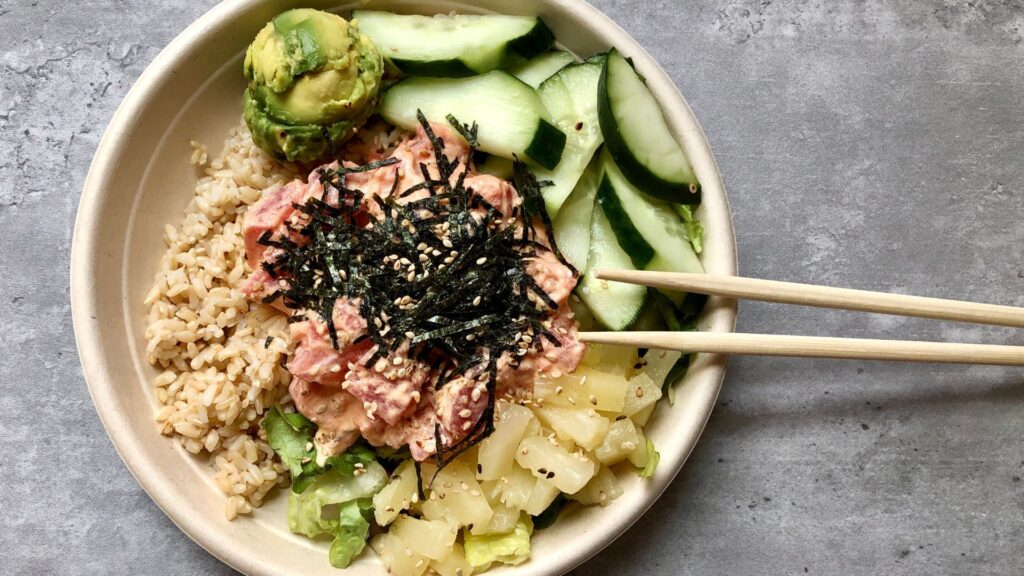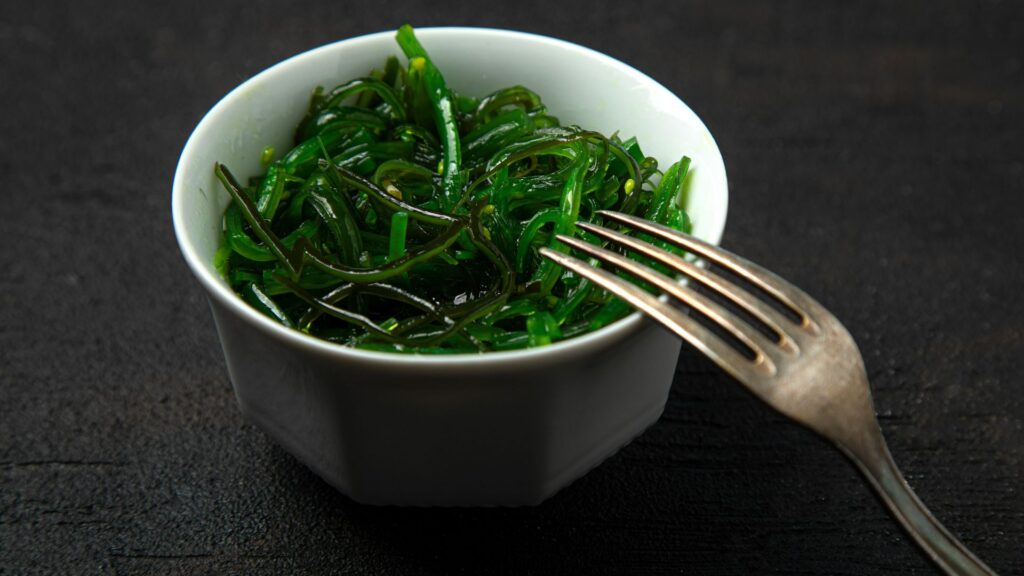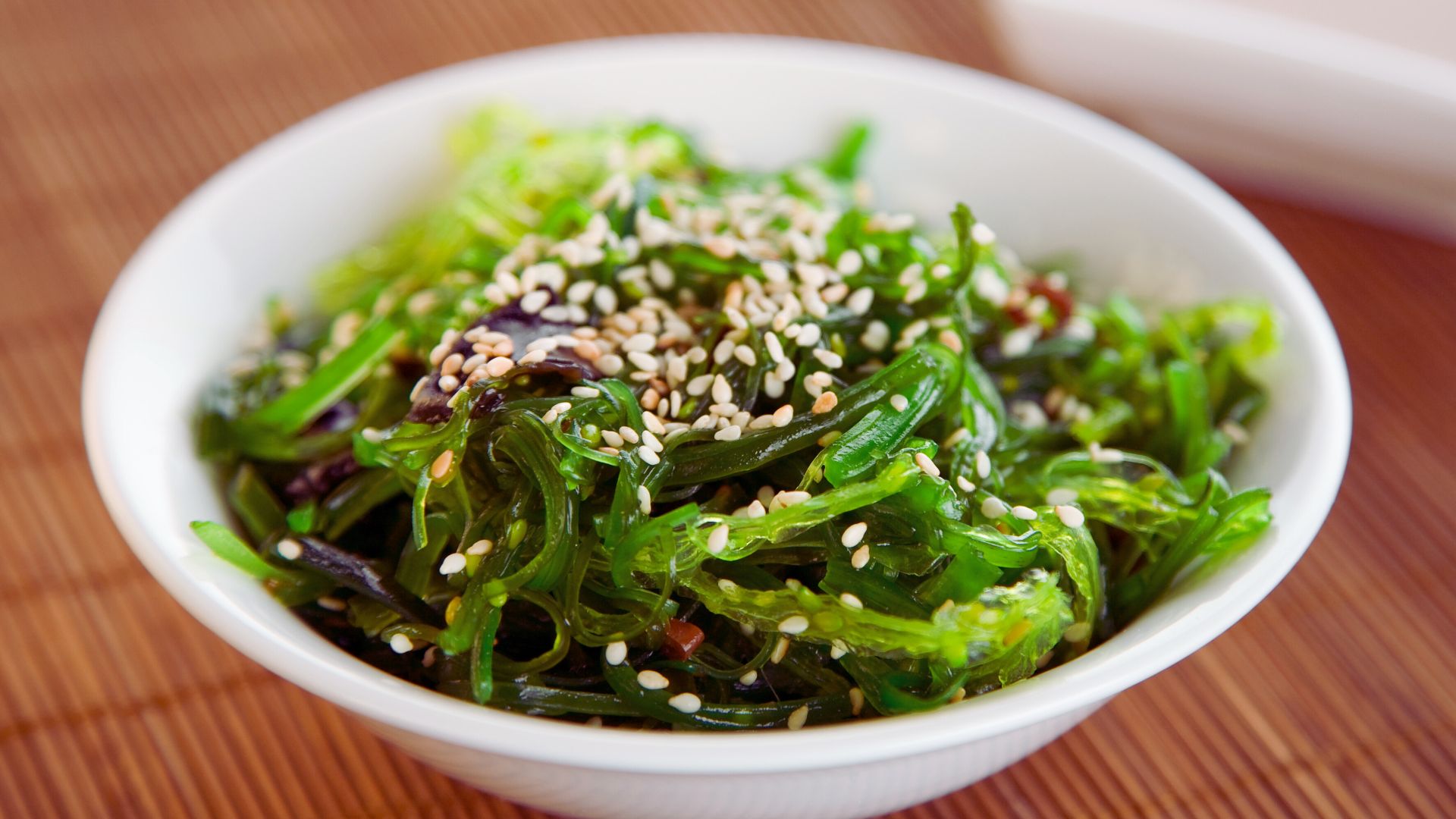Seaweed is described as a “superfood”. But they are not always so “super” as that. Here's what you need to know about algae, as food or dietary supplements.
Traditionally consumed in Asian cuisine, particularly Japanese cuisine — makis, temakis and other miso soups — and used in French gastronomy through various culinary preparations and condiments, marine algae have quietly established themselves in our food uses and in our grocery stores.
Advertisement
While they are appealing for their salty flavor, they are also often praised for their richness in vitamins, mineral salts and trace elements… so much so that they are sometimes referred to by the marketing term “superfood” – meaning that they are particularly beneficial for health, which is why they are now present, in the form of food supplements, on the shelves of physical or online drugstores.
But are kombu, nori, dulse and other wakame really useful or even necessary for our nutritional balance? And above all, can we consume them without risk? On closer inspection, nothing is less certain, and we would especially benefit from aiming for moderation.
Consuming seaweed is neither necessary nor necessarily beneficial
Supposedly “miracle” foods and derived food supplements are sold to us as must-have, essential to our health, allowing us to avoid nutritional deficiencies and to keep or get back in shape. Seaweed is no exception to the rule and is praised for its richness in protein, fiber, potassium, magnesium as well as iodine and vitamin B12… all nutrients whose intake is normally ensured by a balanced diet.
“These are by no means miracle foods”
“ There is no particular benefit to eating seaweed because seaweed does not provide any nutrients that cannot be found elsewhere. It is entirely possible to meet your needs, particularly in iodine, without using algae and we cannot consider them as an essential basic food. These are by no means miracle foods. », explains Aymeric Dopter, head of the Nutrition Risk Assessment Unit of the National Food Safety Agency (ANSES).
Advertisement

In addition, as Sohan Tricoire, dietician, points out, when we eat seaweed, it is generally very small quantities (and we will see later why moderation is essential): “ They therefore contribute only very marginally to the intake of proteins, vitamins, fatty acids, fiber and other nutrients. ” he says.
“Certain algae are sometimes presented as an interesting source of vitamin B12 which would be sufficient to cover the needs of vegetarians and vegans. This is not the case. »
Sohan Tricoire
A specialist in nutritional issues specific to people who have adopted a vegetarian or vegan diet, they invite us to take a certain distance from promises relating to the vitamin B12 content, which may be lacking in people who consume little or no vitamin B12. foods of animal origin: Certain algae are sometimes presented as an interesting source of vitamin B12 which would be sufficient to cover the needs of vegetarians and vegans. This is not the case: in the current state of our knowledge, algae cannot be considered as a reliable source of vitamin B12, in particular because they contain very low quantities of active vitamin B12. »
Another nutrient present in algae and which could be lacking in vegetarians and vegans since it is mainly found in the flesh of marine fish, molluscs and crustaceans as well as egg yolk and milk: iodine. ” VSFor these people, the consumption of marine algae can provide significant quantities of iodine, a mineral essential for the synthesis of thyroid hormones, the intake of which may be insufficient in the context of a predominantly plant-based diet. Especially if these people do not consume fish or other seafood, and little or no eggs and dairy products » explains Sohan Tricoire.
Beware of excess iodine
But if this iodine can be beneficial for this specific category of eaters, it can also prove harmful when consumed in excess, whether through a diet that places too much emphasis on algae or through the use, without proven deficiency, of food supplements that contain it.
In question: the action of this trace element on the thyroid, a gland located at the base of the neck which produces two hormones (triiodothyronine, T3, and thyroxine, T4) which act on the metabolism of the body and participate notably the regulation of body temperature, body weight, muscle strength, appetite, respiration, growth, the reproductive system as well as heart, brain and kidney functions.


“ Too much iodine intake can cause problems with thyroid function. Depending on the individual, they can lead either to hyperthyroidism or, on the contrary, to hypothyroidism. In either case, this leads to metabolic disorders, particularly in terms of thermoregulation. », explains Aymeric Dopter. Hyperthyroidism will notably cause an accelerated heart rate, hot flashes, anxiety, tremors, insomnia, fatigue, muscle weakness and even weight loss.
As for hypothyroidism, it will cause chronic fatigue, weight gain, increased sensitivity to cold, slowing of the heart rate or even cramps and symptoms of depression. The ANSES specialist emphasizes that in addition to these effects linked to excessive consumption of algae over time, there may also be “ acute iodine poisoning which manifests itself as diarrhea, headaches, and more rarely, skin manifestations and heart problems “.
“Depending on the type of algae and even within the same species, it can have very different iodine concentrations.
Aymeric Dopter
If ANSES considers that adults should not exceed the limit value of 600 micrograms per day and that French regulations have set the maximum daily dose of iodine at 150 micrograms in food supplements, it is however very difficult to assess its own iodine consumption because, as Aymeric Dopter points out: “ Depending on the type of algae and even within the same species, it can have very different iodine concentrations. Added to this variability is the fact that thermal treatments (cooking, boiling, canning, etc.) reduce the concentration of iodine in the algae. »
No need to take out your calculators. For example, the royal kombu found in Japanese dashi can contain between 36 and 6396 micrograms of iodine per gram while nori contains between 5 and 215 micrograms per gram.


How to consume seaweed?
So how to consume (or not) algae in a reasonable way? The first thing to do is not to be seduced by food supplements that contain it. “ Taking a food supplement is never something trivial », recalls Sohan Tricoire. “ This should always be subject to the advice of a doctor. It may also be wise to seek the advice of a dietician to assess your nutritional balance and check if there are things that can be optimized. »
“ Taking a food supplement is never something trivial »
Sohan Tricoire
Then if, as Aymeric Dopter explains “ today it is not a question of sounding the alarm by preventing people from going to Japanese restaurants or buying seaweed products “, it is preferable to encourage ” consumers not to increase the number of sources of iodine intake and to moderate their consumption of algae “. Sohan Tricoire thus invites us to reserve the algae “ for very occasional consumption, for the pleasure of having original and different flavors in your diet but not for regular and/or excessive consumption “. So no more seaweed flakes and other fisherman's salads sprinkled on all dishes.
Finally, certain categories of people should refrain from consuming seaweed. Aymeric Dopter specifies: “ Certain populations can be recommended not to consume algae: people who have thyroid disorders (hyperthyroidism and hypothyroidism), pregnant and breastfeeding women. Caution is also required for children: there are currently too few studies to assess the risks affecting them. »
One last thing must call for moderation and vigilance and in particular by favoring algae coming from regulated circuits: the possible concentration of algae in cadmium: “ It is not a nutrient but a contaminant. It is a poison, recognized as carcinogenic, mutagenic and toxic for reproduction, which causes kidney and bone damage. », alerts Aymeric Dopter referring to the opinion from Anses of July 2020 on this subject.
